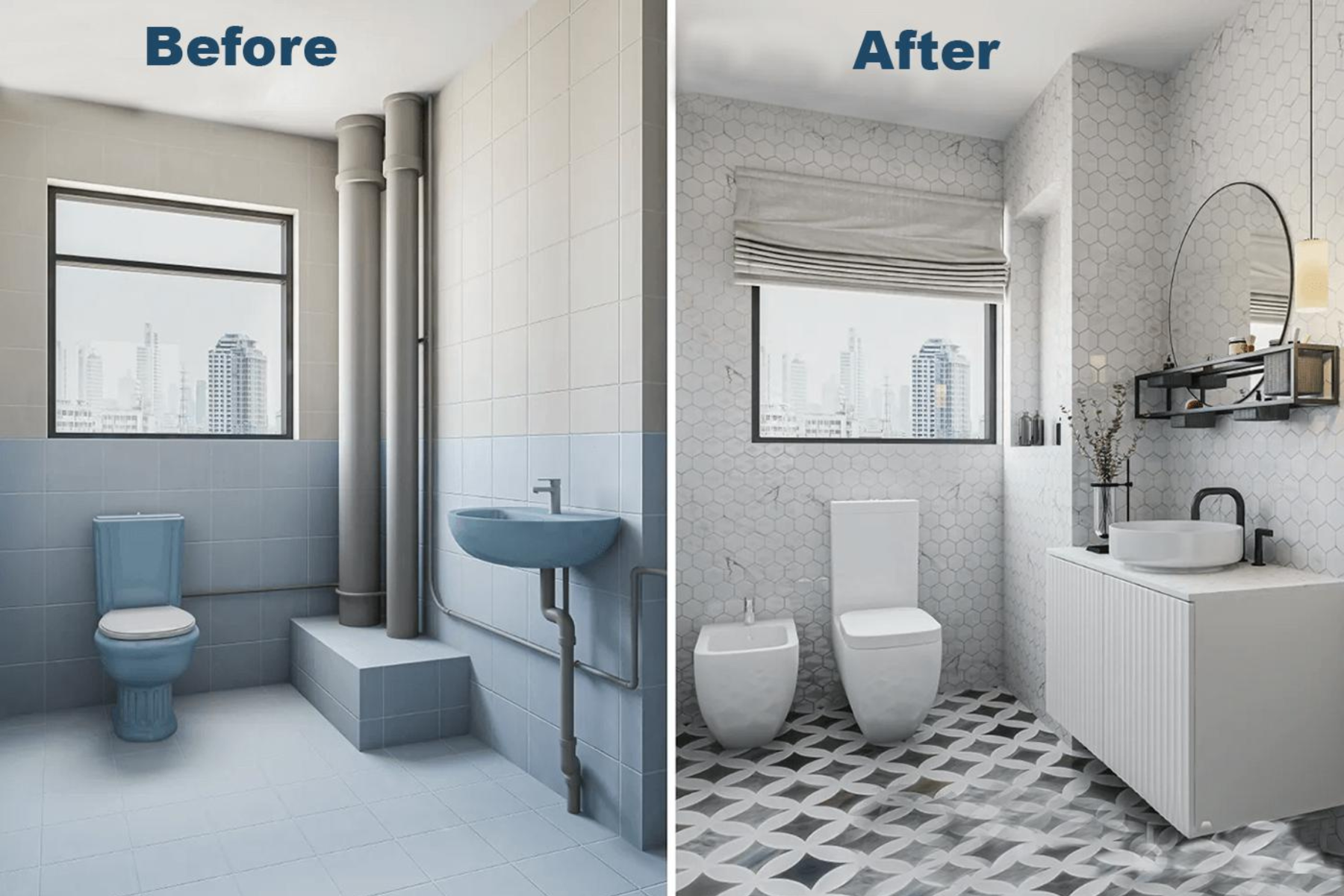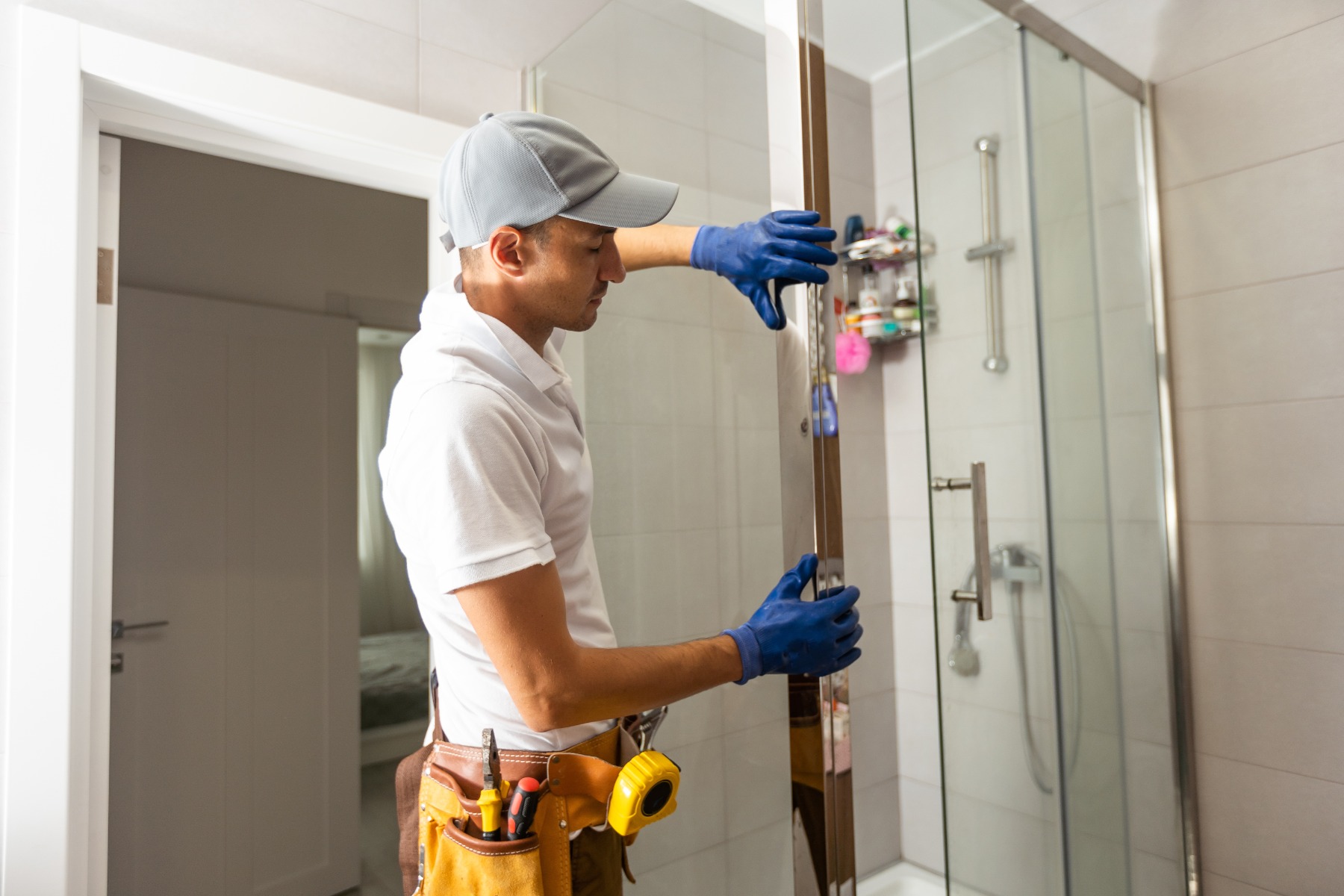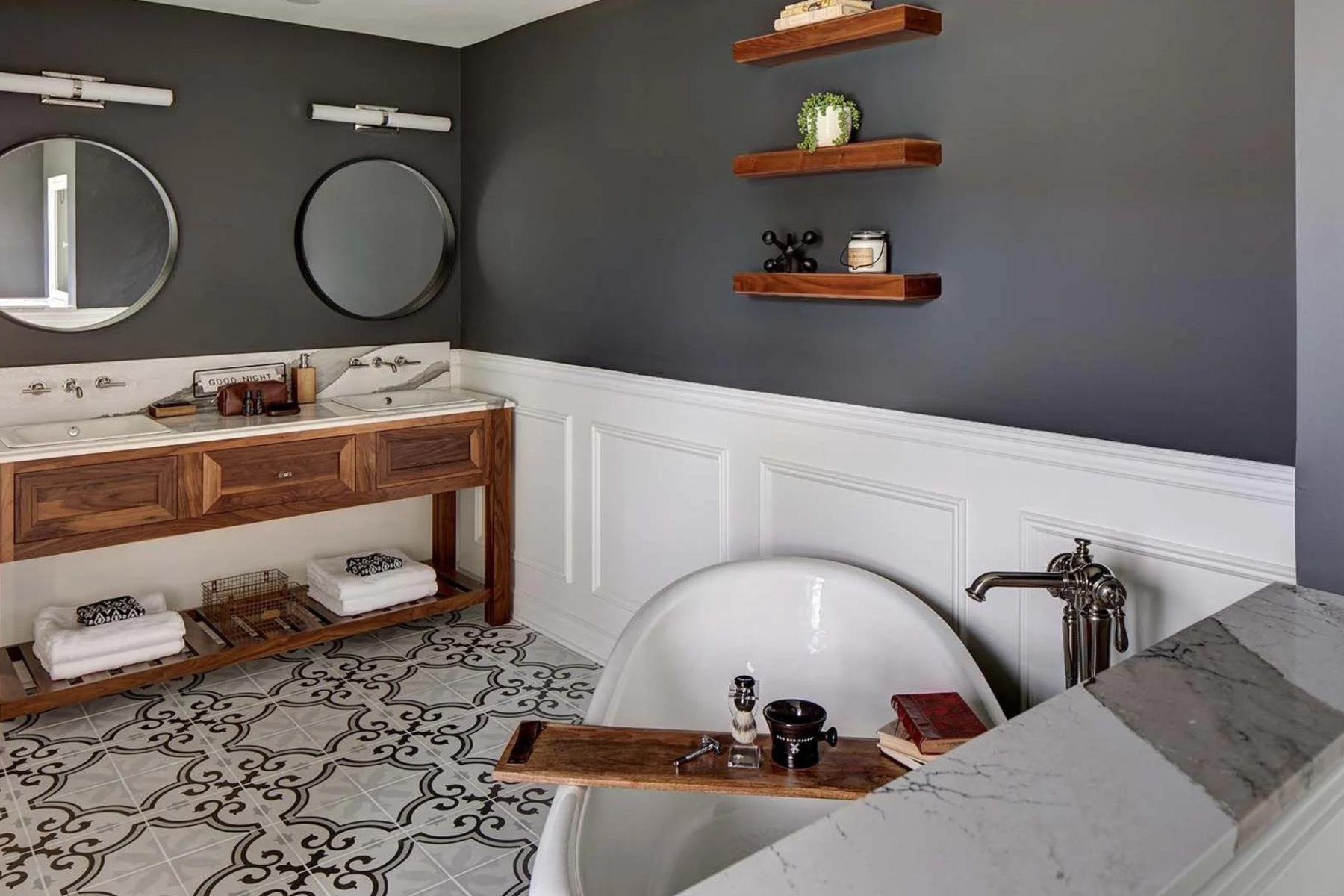Renovating a bathroom is rewarding as it not only enhances the aesthetics of your home but also adds significant value. Whether you're planning a complete overhaul or a budget-friendly refresh, our comprehensive guide will walk you through the process, step by step.

Planning Your Bathroom Renovation
Define Your Goals
Before diving into the renovation, establish clear goals. Are you looking to enhance functionality, update the style, or both? Define your priorities to guide the renovation process.
Set a Realistic Budget
Create a detailed budget outlining all potential expenses, including materials, labour, and unforeseen costs. Be realistic and allocate funds for unexpected surprises that may arise during the renovation.
Gather Inspiration
Explore design ideas and gather inspiration from various sources, such as home improvement magazines, online platforms, and social media. Create a mood board to visualise the desired look and feel of your renovated bathroom.
Getting Started With The Renovation
DIY vs. Professional Help
Decide whether you'll tackle the renovation yourself or hire professionals. DIY projects can be cost-effective, but complex tasks may require the expertise of skilled contractors. Choose an approach that aligns with your skills and the scope of the project.
Create A Timeline
Establish a realistic timeline for your bathroom renovation. Consider the size of the project, availability of materials, and whether you'll be completing the renovation in phases. A well-planned timeline helps manage expectations and ensures a smoother process.

Executing The Renovation
Demolition
Begin with the demolition phase, removing old fixtures, tiles, and any unwanted elements. Exercise caution to avoid damaging existing structures. If you're not confident in handling demolition, seek professional assistance.
Plumbing And Electrical Work
Address plumbing and electrical tasks early in the renovation process. Ensure that all plumbing fixtures, pipes, and electrical components meet safety standards. This is a critical step that may require professional assistance.
Installation Of New Fixtures And Features
Install new fixtures, such as the bathtub, shower, sink, and toilet. Lay the groundwork for tiling and flooring, ensuring precision in measurements and placement. If incorporating new features like a vanity or storage, prioritise their installation at this stage.
Tiling And Flooring
Choose quality tiles and flooring materials that align with your design vision. Properly install tiles, ensuring a waterproof seal in areas prone to moisture. Quality tiling adds both aesthetic appeal and functionality to the renovated space.
Painting And Finishing Touches
Apply a fresh coat of paint to the walls and ceilings. Select colours that complement your design theme. Install additional features such as mirrors, lighting fixtures, and accessories to complete the transformation.

Tips On How To Keep Bathroom Renovation Costs Down?
- To keep bathroom renovation costs down, set a realistic budget, plan thoroughly, and consider DIY for simpler tasks.
- Preserve existing plumbing to avoid additional expenses. Refinish instead of replacing certain elements, and shop smart for materials, exploring discounted options.
- Optimise lighting, repurpose fixtures, and focus on high-impact changes.
- Obtain multiple quotes, prioritise essential upgrades, and reuse existing fixtures if suitable.
- Avoid structural changes and carefully evaluate each expense to stay within budget while achieving a refreshed and upgraded bathroom.
Frequently Asked Questions
How Long Does It Take To Renovate A Bathroom?
The duration of a bathroom renovation varies based on factors like project size, complexity, and whether professionals are involved. On average, a full bathroom renovation may take anywhere from two to four weeks.
How Can I Renovate My Bathroom On A Budget In The UK?
To renovate a bathroom on a budget in the UK, consider tasks you can DIY, shop for budget-friendly materials from bathroom solutions providers like Bathroom Takeaway, and prioritise essential upgrades. Reusing existing fixtures and focusing on cost-effective improvements can also help keep bathroom renovation costs down.
Do Bathroom Renovations Increase Home Value?
Yes, a well-executed bathroom renovation can significantly increase the overall value of your home. Modern, functional, and aesthetically pleasing bathrooms are attractive selling points for potential buyers.
Do You Need A Permit To Renovate A Bathroom?
The need for a permit depends on the scope of the renovation and local regulations. Generally, if the project involves structural changes, plumbing, or electrical work, a permit may be required. Check with your local authorities to ensure compliance.
Do Bathroom Renovations Need Council Approval?
Approval from the council for your bathroom renovations is not required unless you are altering or relocating walls, or modifying the dimensions of doors and windows.
Can I Claim Bathroom Renovations On My Taxes In The UK?
You can claim tax deduction for all expenditure on repairs to your building that are incurred in an accounting period as alterations to a building will be treated as 'capital expenditure'.
How Long Does It Take To Renovate A Small Bathroom?
The time to renovate a small bathroom can vary, but on average, it takes approximately 2 to 3 weeks. Factors influencing the timeline include the scope of renovations, complexity, contractor availability, and any unforeseen issues. A DIY project might take longer, depending on skills and available time. Proper planning, efficient coordination, and realistic timelines contribute to a successful and timely small bathroom renovation.






















